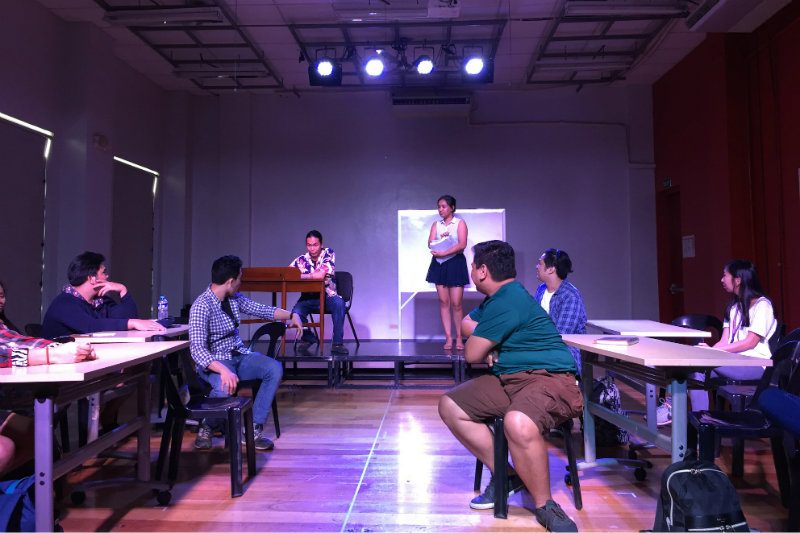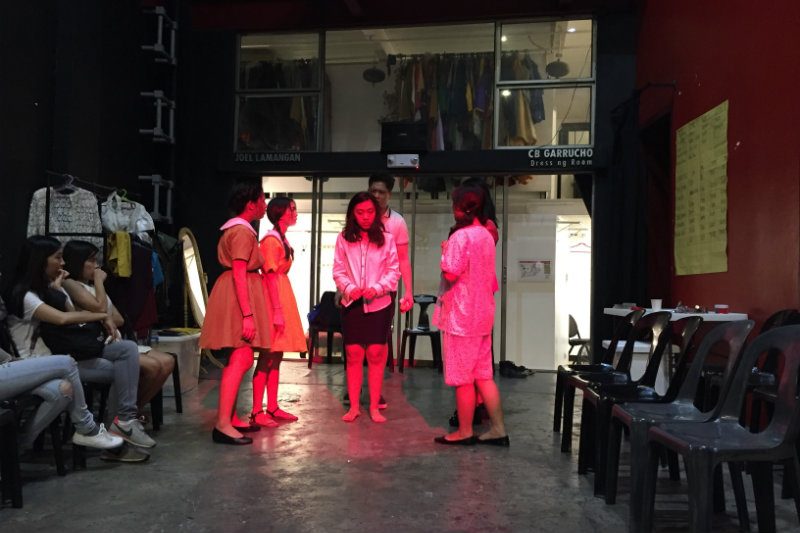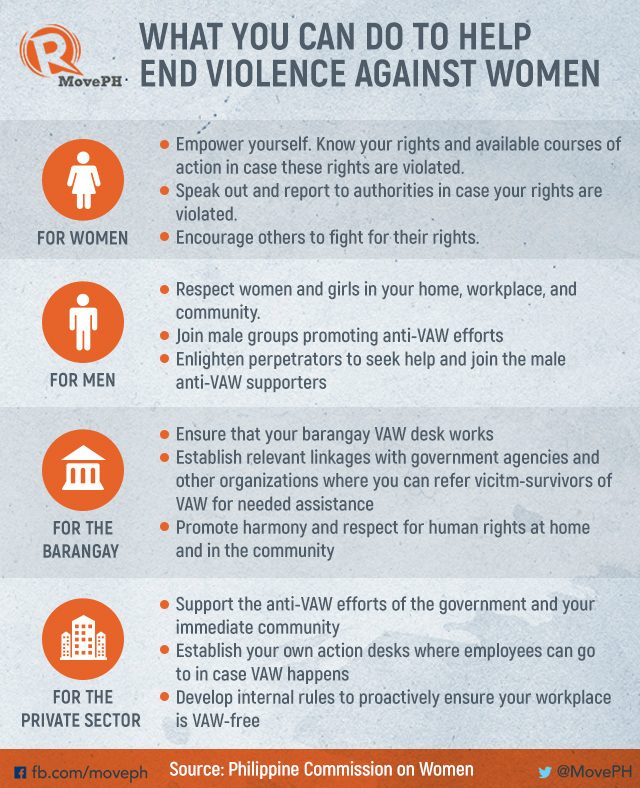SUMMARY
This is AI generated summarization, which may have errors. For context, always refer to the full article.

MANILA, Philippines – Like pollution, violence against women (VAW) can be so pervasive yet invisible at the same time.
This toxic culture against women and children includes physical abuse, such as sexual harassment and rape, and the subtle yet insidious practices of victim blaming and catcalling. (READ: The streets that haunt Filipino women)
The Philippine Commission on Women (PCW) wants to stop these forms of violence. PCW has lined up several projects to observe their 18-day campaign to end VAW to meet this goal.
One of such projects is the 3-day “experiential museum” that PCW organized, in partnership with Philippine Educational Theater Association (PETA), to show the hard truths surrounding VAW.
In a statement, PCW executive director Emmeline Verzosa said that compassion for victim-survivors and respect for the rights of women and girls are needed to achieve a VAW-free community.
“Compassion is beyond sympathizing. It is knowing and understanding the situations of victim-survivors,” Verzosa said.
Immersive experience
The experiential museum takes its audience to 4 different scenes illustrating how women are abused at home, in the workplace, on the streets, and online.
The “experiential museum” visualizes VAW through an immersive theatrical experience showing the struggles of women who are victims of abuse.
J-mee Katanyag, one of the dramaturgs of PETA, said they wanted to go beyond physical abuse and also tackle the thin line between jokes and sexual harassment.
Through the leadership of PETA, the event puts onstage UST’s Artistang Artlets, Mapua Tekno Teatro, and Youth Advocates Through Theater Arts (YATTA) of Dumaguete.

The scene featuring theater actors from Dumaguete showed how rape committed by husbands against their wives is normalized in society.
It also threw spotlight on how some family members can consent to pimping their own daughters or sisters – most of them underage – by passing it off as a “sacrifice” for the whole family.
In another scene, theater actors from the Mapua showed how men in school can use their positions of power to take advantage on other women.
While set at different backgrounds, the 4 scenes illustrate one thing in common: perpetrators come from perceived positions of power. All scenes evoke discomfort and helplessness among the viewers.
“Feeling ko yung helplessness, damang dama ko. Meron akong puwedeng gawin…pero wala nga akong magawa kasi feel ko nga helpless ako,” museum visitor Anna Maria Sotto said.
(I felt helpless watching the scenes. I knew that I could do something to intervene, but I wasn’t able to do anything because I felt helpless)
Sotto added that she hopes the scenes will change the minds of those who still deny that VAW exists.
The problem in figures
A study by Social Weather Stations (SWS), released in March this year, showed that 3 in 5 women in Quezon City alone were sexually harassed at least once in their lifetime.
On the other hand, 58% of respondents ages 12 to 24 said they were unsure to call Quezon City safe or not. A staggering figure of 88% of respondents ages 18 to 24 also said that they have experienced sexual harassment at least once.
Filipino women are not alone.
According to a study published by the World Health Organization, up to 35% of women globally have experienced violence – physical or sexual – at some point of their lives. In some regions, the numbers can go up as high as 70% of women.
Worse, studies also show that, in 2012, close to half of the women killed globally were killed by somebody close to them – either a family member or an intimate partner.
What you can do
More than recounting the plight of women who experience violence, PCW said the museum hopes to make its audience reflect on what they can do as an individual.
According to the agency, women who are victims of abuse can start by speaking out and reporting to the authorities in case their rights are violated. “Encourage others to fight for their rights,” PCW added in its statement.
Below are just some of the things women, men, barangay, and private companies can do to help put an end to VAW:

“Violence against women is no longer a private matter. VAW affects one’s personhood, one’s work, one’s community involvement. We can all do our share to care and act,” Versoza said.
If you were there, what would you do to help end violence against women? – Rappler.com
The museum will run until November 26, 2017. It is open to public for free. You can claim your tickets at the Registration area, Lobby Hall, PETA Theater, Quezon City. You may register here.
Add a comment
How does this make you feel?
There are no comments yet. Add your comment to start the conversation.